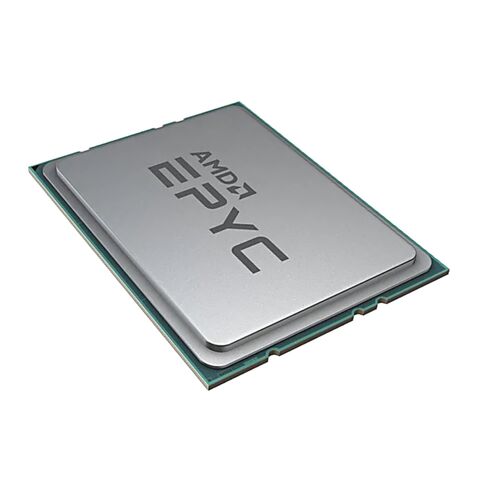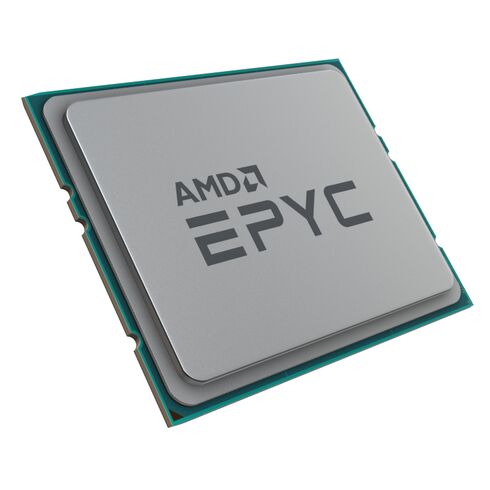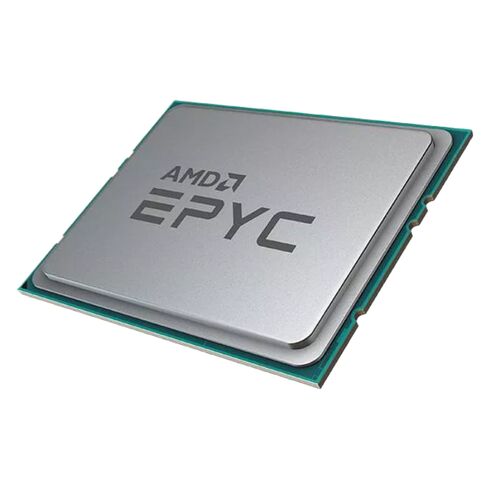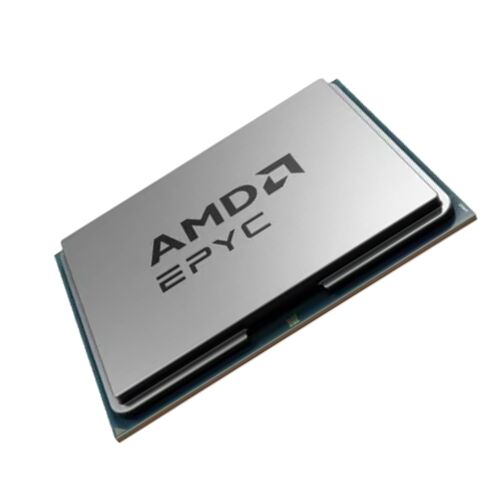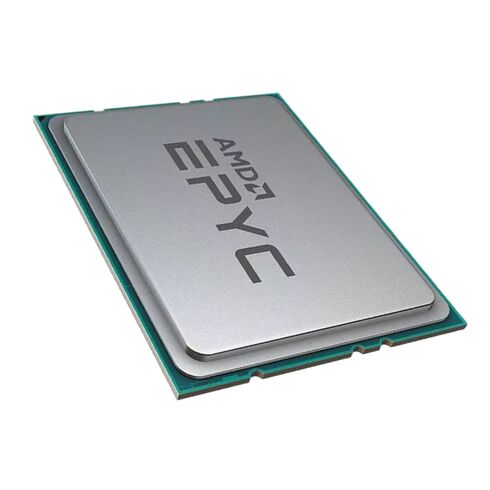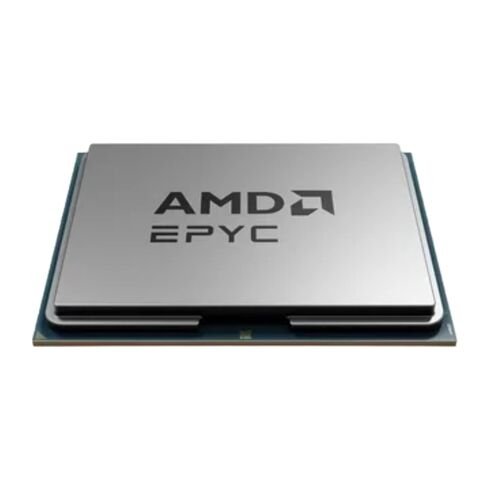100-000000055 AMD EPYC 7H12 Server Processor 64-Core 2.6GHz 256MB L3 SP3 7NM 280W
- — Free Ground Shipping
- — Min. 6-month Replacement Warranty
- — Genuine/Authentic Products
- — Easy Return and Exchange
- — Different Payment Methods
- — Best Price
- — We Guarantee Price Matching
- — Tax-Exempt Facilities
- — 24/7 Live Chat, Phone Support
- — Visa, MasterCard, Discover, and Amex
- — JCB, Diners Club, UnionPay
- — PayPal, ACH/Bank Transfer (11% Off)
- — Apple Pay, Amazon Pay, Google Pay
- — Buy Now, Pay Later - Affirm, Afterpay
- — GOV/EDU/Institutions PO's Accepted
- — Invoices
- — Deliver Anywhere
- — Express Delivery in the USA and Worldwide
- — Ship to -APO -FPO
- — For USA - Free Ground Shipping
- — Worldwide - from $30
Core Count: 64
The AMD EPYC 7H12 Server Processor is equipped with an impressive core count of 64. This means that the processor has a total of 64 cores, allowing it to handle a high volume of tasks simultaneously. With such a high number of cores, users can expect exceptional performance and efficiency for their server applications.
Improved Multitasking
One of the key benefits of having 64 cores is the ability to handle multiple tasks at once. Multitasking becomes a breeze as each core can independently execute instructions, enabling efficient processing of various workloads. Whether it's running multiple virtual machines, handling database queries, or executing complex calculations, the AMD EPYC 7H12 excels in delivering exceptional multitasking capabilities.
Boosted Productivity
The increased core count translates to improved productivity for businesses and individuals alike. With more cores available, users can run resource-intensive applications without experiencing slowdowns or bottlenecks. This is particularly beneficial for tasks that require substantial computational power, such as rendering high-resolution graphics or conducting data analysis.
Enhanced Server Performance
For server environments, the 64-core configuration of the AMD EPYC 7H12 Server Processor ensures optimum performance. Servers running heavy workloads, such as web hosting or cloud computing, can handle a larger number of concurrent requests with ease. The increased core count allows for efficient load balancing and ensures smooth operations even during peak usage periods.
Base Clock Speed: 2.6GHz
Another notable feature of the AMD EPYC 7H12 Server Processor is its base clock speed of 2.6GHz. The base clock speed refers to the frequency at which the processor operates under normal conditions without any turbo boost or overclocking. This feature plays a crucial role in determining the overall performance and responsiveness of the processor.
Stable and Reliable Performance
A higher base clock speed ensures that the processor maintains a stable and reliable performance level. The 2.6GHz base clock speed of the AMD EPYC 7H12 guarantees consistent processing power, allowing users to rely on the processor's performance for a wide range of applications. Whether it's running demanding software or handling complex calculations, users can trust that the processor will deliver consistent results.
Quick Response Times
The base clock speed directly affects the responsiveness of the processor. A higher base clock speed means faster response times, enabling smoother multitasking and reduced latency. This is particularly important for tasks that require real-time interactions, such as gaming or live streaming. With a base clock speed of 2.6GHz, users can expect quick and snappy performance in their day-to-day operations.
Efficient Power Management
The AMD EPYC 7H12's base clock speed of 2.6GHz strikes a balance between performance and power consumption. The processor is designed to efficiently manage power usage while still delivering excellent performance. This is crucial for server environments where power efficiency is a significant concern. By optimizing power consumption, users can reduce operational costs and minimize their environmental impact.
L3 Cache: 256MB
The AMD EPYC 7H12 Server Processor boasts an impressive L3 cache size of 256MB. The L3 cache plays a crucial role in improving the processor's overall performance by providing fast access to frequently used data.
Accelerated Data Retrieval
With a large L3 cache size of 256MB, the AMD EPYC 7H12 ensures that frequently accessed data is readily available. This speeds up data retrieval and reduces latency, resulting in faster overall system performance. Whether it's accessing large databases, running complex algorithms, or handling data-intensive applications, the processor can quickly retrieve the necessary information from the cache, enhancing efficiency and productivity.
Improved Application Responsiveness
The large L3 cache size benefits applications that heavily rely on data caching for optimal performance. By storing more data in the cache, the processor can reduce the need to access slower memory resources, such as RAM or storage drives. This results in improved application responsiveness, as the processor can quickly access critical data without experiencing significant delays.
Efficient Workload Management
Having a substantial L3 cache size also enables efficient workload management. The processor can store a larger portion of active data in the cache, reducing the need for frequent data transfers between different levels of memory hierarchy. This minimizes memory bottlenecks and enhances overall system performance, making the AMD EPYC 7H12 an ideal choice for environments with demanding workloads and complex data processing requirements.
Socket Type: SP3
The AMD EPYC 7H12 Server Processor is designed to fit into a socket with SP3 compatibility. The socket type is an essential consideration when selecting a processor, as it determines compatibility with the motherboard and influences system performance and scalability.
Seamless Integration
The SP3 socket type ensures seamless integration of the AMD EPYC 7H12 into compatible motherboards. This compatibility allows users to easily upgrade their existing server infrastructure without the need for significant hardware changes. By simply replacing the existing processor with the AMD EPYC 7H12, users can take advantage of its advanced features and performance enhancements.
Scalability and Flexibility
The SP3 socket type offers excellent scalability and flexibility for server environments. It allows users to choose from a wide range of compatible motherboards that support different configuration options, such as multiple processors or increased memory capacity. This level of flexibility enables users to customize their server setups to meet specific requirements, whether it's for small-scale applications or large enterprise deployments.
Future-Proofing
Investing in a processor with an SP3 socket type provides a level of future-proofing for server infrastructure. As technology advances and new processor generations are released, users can easily upgrade their servers by swapping out the existing processor for a newer model without needing to change the entire motherboard. This ensures that the server infrastructure remains up-to-date and capable of handling evolving workload demands.
Manufacturing Technology: 7NM
The AMD EPYC 7H12 Server Processor is built using the advanced 7nm manufacturing technology. The manufacturing process directly impacts the performance, power efficiency, and overall capabilities of the processor.
Enhanced Performance
The 7nm manufacturing technology offers several advantages that contribute to enhanced processor performance. The smaller transistor size achieved through this process allows for more transistors to be packed onto the same die area, increasing computational power. This results in improved instructions per clock (IPC), enabling the AMD EPYC 7H12 to deliver exceptional performance for demanding applications and workloads.
Power Efficiency
The 7nm manufacturing technology also improves power efficiency by reducing leakage and minimizing energy consumption. The smaller transistors require less voltage to operate, resulting in lower power consumption and heat generation. This is particularly significant for server environments where power efficiency is crucial for reducing operational costs and maintaining optimal performance.
Future-Ready Architecture
By utilizing the 7nm manufacturing technology, the AMD EPYC 7H12 embraces an architecture that is future-ready. As technology continues to advance, processors built using this manufacturing process are well-positioned to handle future software and workload demands. This ensures that users can rely on the AMD EPYC 7H12 for years to come, making it a smart investment for businesses looking to stay ahead of the curve.
Power Consumption: 280W
The AMD EPYC 7H12 Server Processor has a power consumption of 280W. Power consumption is an essential consideration for server deployments as it affects both operational costs and environmental impact.
Optimized Power Efficiency
Despite its high performance, the AMD EPYC 7H12 is designed to deliver excellent power efficiency. With a power consumption of 280W, the processor strikes a balance between performance and energy usage. This ensures that servers running the AMD EPYC 7H12 can efficiently handle demanding workloads while minimizing power expenses.
Reduced Operational Costs
The energy-efficient design of the AMD EPYC 7H12 translates into cost savings for businesses. By consuming less power, servers powered by this processor can significantly lower operational costs, particularly in data centers with numerous servers running continuously. The reduced power consumption also results in less heat generation, leading to lower cooling requirements and additional cost savings.
Environmental Responsibility
The low power consumption of the AMD EPYC 7H12 contributes to environmental responsibility. By minimizing energy usage, businesses can reduce their carbon footprint and make strides towards sustainability. As organizations focus on green initiatives and seek ways to minimize their environmental impact, choosing a processor with a power-efficient design like the AMD EPYC 7H12 is an important step in the right direction.
Part Number: 100-000000055
The part number of the AMD EPYC 7H12 Server Processor is 100-000000055. Part numbers are unique identifiers assigned to individual products, allowing for easy identification and differentiation in the market.
Product Recognition
The part number serves as a reliable means of recognizing and identifying the AMD EPYC 7H12 Server Processor. When searching for or purchasing this particular processor, users can refer to the part number to ensure they are selecting the correct model. This simplifies the procurement process and ensures that users receive the precise product they need.
Compatibility Assurance
The part number also plays a crucial role in guaranteeing compatibility with other hardware components. By referencing the part number, users can verify that the processor is compatible with their existing motherboard, server infrastructure, and associated peripherals. This compatibility assurance eliminates the risk of purchasing incompatible components, ensuring a seamless integration and optimal performance.
Product Differentiation
In a market flooded with various processors, the part number helps differentiate the AMD EPYC 7H12 from other models. Whether it's for comparing specifications, identifying specific features, or distinguishing between different processor generations, the part number provides a unique identifier that helps users make informed decisions. This ensures that users can select the AMD EPYC 7H12 Server Processor with confidence, knowing they are choosing a high-quality and reliable product.

